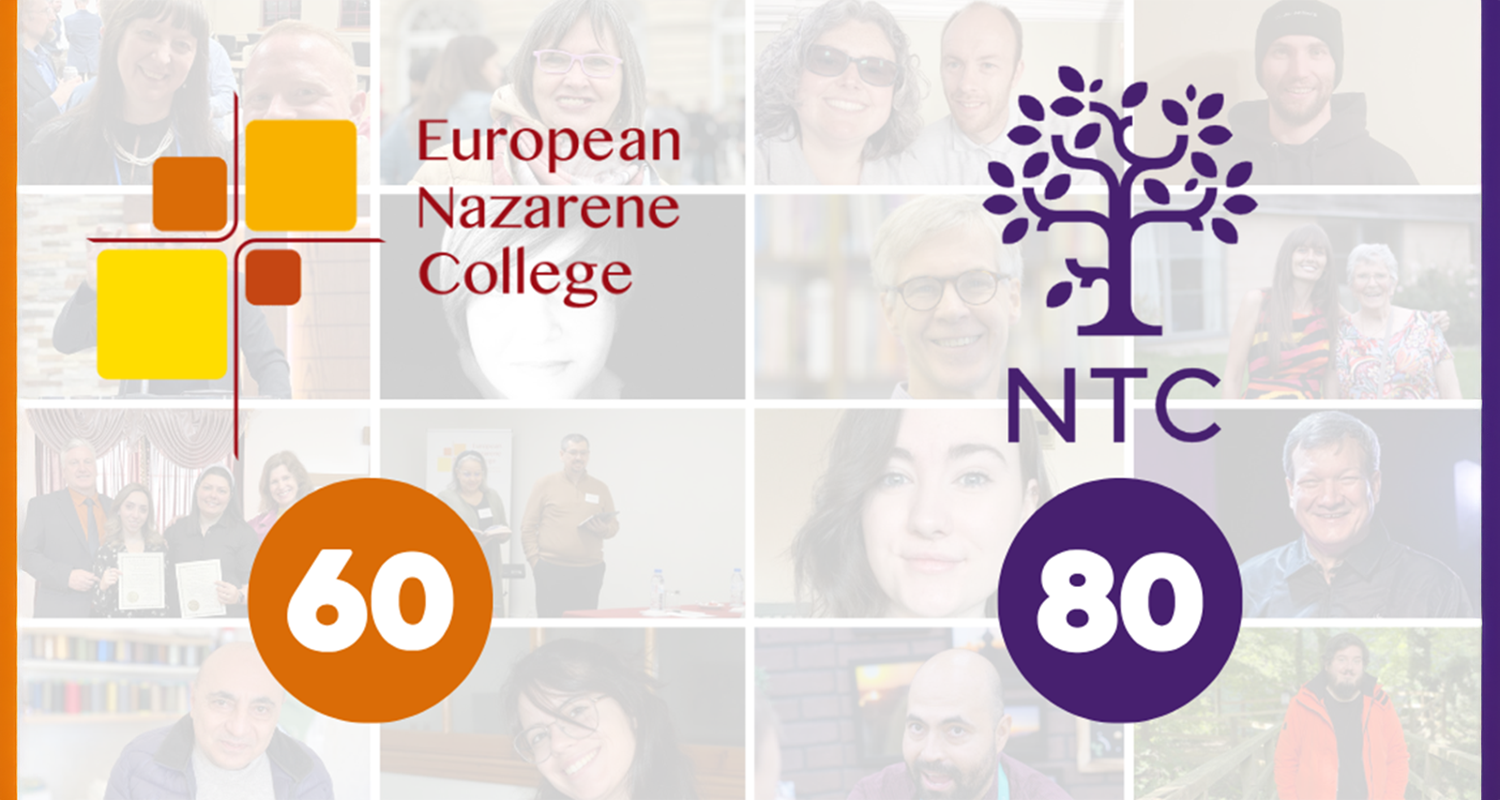From the classroom to the church pew and into the community, the leaders and educators of Nazarene Theological College Manchester (NTC) and European Nazarene College (EuNC) have spent decades shaping the hearts and minds of Christians. Students graduate with a deeper theological understanding of their faith and a richer perspective on how to live out the call of a Christ follower.
“Our call is to be a hospitable and generous community of difference and discipleship,” said Deirdre Brower Latz, principal of NTC. “We are deeply committed to the Church, and to a vibrant emphasis that good theology shapes great practical relevance.”
EuNC’s rector, Reverend Maria Gusztinne, sees similar evidence for her college.
“Instructors don’t simply seek to instill theoretical knowledge,” Gusztinne said, “but there is an integrated praxis and heart for the Church.”
In the classrooms of EuNC, she adds, “theory is not separated from the joy and challenges of praxis.”
As NTC and EuNC celebrate 80 and 60 years of education, respectively, both colleges remain committed to equipping believers from around the Eurasia Region and beyond. But while the core mission remains steadfast, both colleges have changed how they serve an evolving student body.
Both campuses initially functioned as residential programs. NTC (then located in Glasgow, Scotland, and operating under the name Hurlet Nazarene College) required students to spend time each day laboring on the grounds—working in the chicken coops, vegetable gardens, campus bookstore, or kitchen.
In Busingen, Germany, EuNC (then called European Nazarene Bible College) cultivated a reputation as a “holy island,” according to Gusztinne—a tiny campus nestled inside a small town along the Rhine River. When she and her husband began attending as students in 1992, Maria found the college surrounded by beauty and filled with a devoted body of Christians. “It was a very vibrant community of students, teachers, and staff living communal life,” she says, calling the campus the ideal place to develop.
EuNC branched out in the early 1990s, following the end of Communism, and launched services to students at extension locations throughout continental Europe. In 2011, the college closed its residential branch and focused on equipping its extension centers.
Today, EuNC serves students in more than 27 countries at 17 learning centers through instruction in 15 languages. Its multilingual and multicultural model makes theological education accessible, contextual, and sustainable across the region. Students now receive their education while “rooted in their faith communities,” Maria shares, where they are mentored by their local pastor and often intern in a local church.
NTC moved to Manchester, England, in 1959, officially partnering with the University of Manchester in 1992. Now, Brower Latz says, the college is experiencing a fresh wave of change. “I’ve seen us deepen and widen our vision,” she says, “while still gravitationally circling our first motto, ‘Scholarship on Fire.’”
The expanding vision certainly impacts coursework. However, change has also emerged among those pursuing an NTC degree.
“We’ve developed a much broader student body,” Brower Latzs added. She noted that 14 nationalities currently serve on the college staff and faculty team, with more than 30 nationalities represented in the student population.
In addition to the increasingly multinational face of NTC, there is also a shifting student profile at EuNC.
While the college has always sought to serve both ministry professionals and laity, incoming students often register to deepen their understanding of Christianity. Students are now frequently enrolling not to pursue a career in ministry but to learn more about the foundational truths of following Jesus. Others arrive as active pastors, lay leaders, or ministry workers.
While some students begin their studies simply to grow in personal discipleship, more than 70 percent of EuNC’s student body is enrolled in ministerial programs.
Since their first alumni graduated, both schools have seen generations of students pass through their programs. At EuNC, 619 students have graduated since its founding. AT NTC, there have been over 1500 graduates, with over a third of those at the MA or PhD level.
Both Guzstinne and Brower Latz are excited about the future of their respective institutions. And having seen God’s faithfulness in the past, they look ahead with eager anticipation.
“God has been endlessly gracious to us, in vision, provision, and presence,” Brower Latz said. “We know this is through prayer, people, and persistent obedience to God’s call to our college and our team. We are looking forward to what is to come.”
